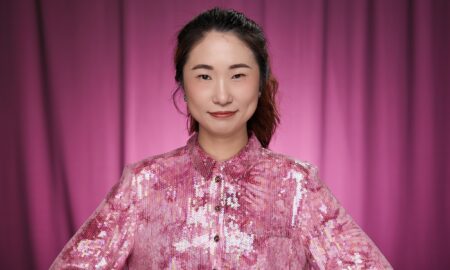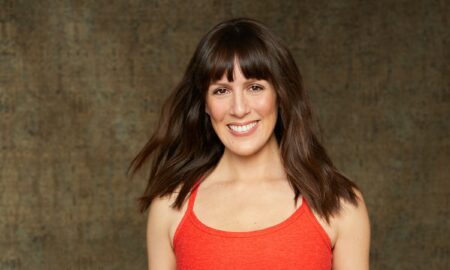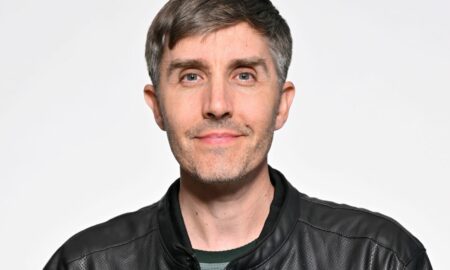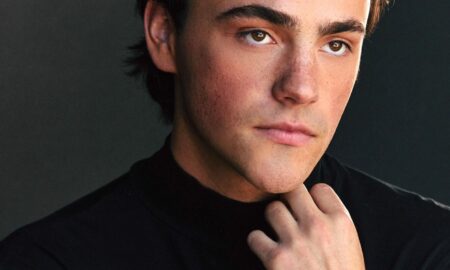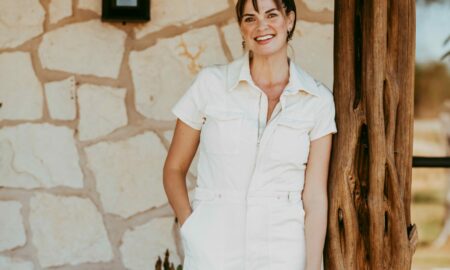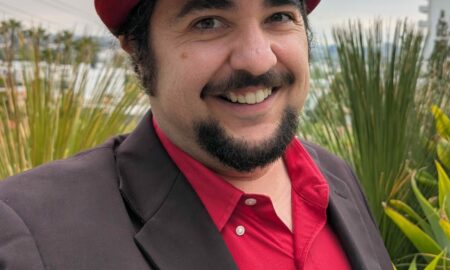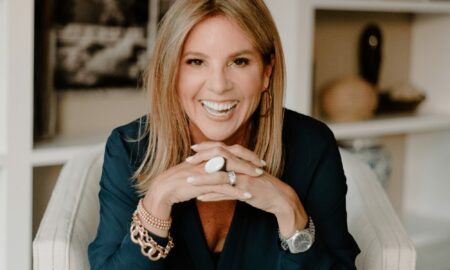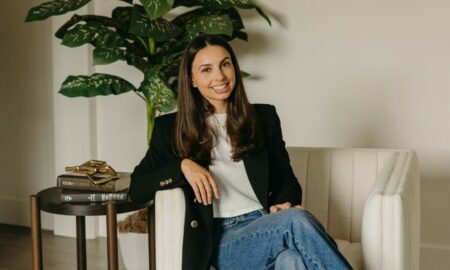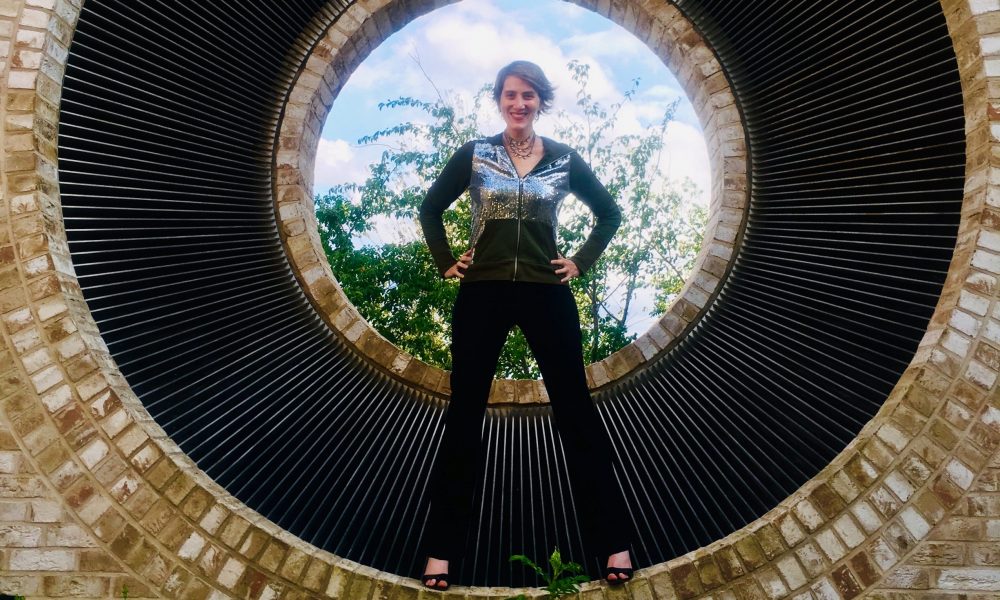

Today we’d like to introduce you to Rosalind Helfand.
Rosalind, before we jump into specific questions about your work, why don’t you give us some details about you and your story.
I was born in Los Angeles and my parents moved to Simi Valley when I was a kid. Simi Valley suffers from overdevelopment, and I started campaigning for the environment by the time I was a teenager. I worked on everything from Mojave desert protections to lead poisoning, especially in cities. I was obsessed with reforestation and asked for a tree for my twelfth birthday. I studied Environmental Studies at UC Santa Cruz and afterward helped stop yet another big housing development in the Simi Hills. That land is now a protected nature park. I developed numerous important leadership skills during this time and went to work for Mount St. Mary’s University’s Women’s Leadership Program — this is the university near the Getty Center.
While I was there, I met the then Deputy Mayor of West Hollywood, Fran Solomon. The Mayor (currently a Councilmember) was John Heilman and I ended up taking an internship in the Mayor’s office. West Hollywood was a hotbed of innovation where government meets activism, and it was a great place for trying out ideas for educating and uniting communities on both small and large scales — so I stayed on after the internship ended. I became deeply involved in leading WeHo’s literary and human rights programs and worked on the city’s Women’s Leadership Conference. I became a consultant and also helped nonprofit organizations with making improvements and developing strong programs and community outreach campaigns. Of course, I continued to support environmental campaigns and became involved in supporting abortion access, too.
Around 2011, I moved on from directing West Hollywood’s book festival — which I directed for ten years — and worked with LA’s incredible literary community as a co-founder of LitCrawl LA. I also served as the Director of LitFest Pasadena, Managing Editor and Education Director of the literary journal Literature for Life, and Director of Sci-Fest LA’s short sci-fi writing competitions. Most of my literary work was together with the Pasadena nonprofit, Light Bringer Project. At the same time, I was volunteering with Planned Parenthood LA and the National Council of Jewish Women, LA as an advocate for reproductive and environmental justice. I also became involved in the LA County Natural History Museum’s fantastic Community Science program. I was teaching high school writing and leadership classes (on the side — because teens are awesome!) and worked with them to get involved in Community Science, too.
These activities reconnected me with my passion for advocacy and campaigning, and also, especially, with my passion for protecting the environment. Then, a couple of years ago, we ran a set of optional facilitated lunchtime discussions at West Hollywood’s Women’s Leadership Conference. Attendees had reproductive justice, human trafficking, and climate change to choose from. This was kind of an experiment and we didn’t know what would happen, but the majority of participants flocked to the climate change discussion. It seemed that perhaps people who hadn’t thought as much about environmental concerns before were becoming very, very worried. And that was a trigger for my decision to go back to school and study Conservation Leadership. I’m taking a year off to earn my master’s at the University of Cambridge in the UK.
You have to have experience in policy or conservation or both to be in this program, and I’m with a group of 16 other students from 16 countries around the world, working together to workshop solutions to the planet’s big environmental problems. I have a dissertation coming due, and it’s about “how to achieve transformative change for the future of biodiversity.” This idea of transformative change is being discussed by a lot of people, especially in global forums like the United Nations. But people who are thinking about the future of our climate and environment might also call it “radical change” or “fundamental change,” etc. Regardless, the point is that something pretty big needs to happen to set humans and the rest of nature on the road to recovery. I’m looking at what it will take and how to get there.
Overall, has it been relatively smooth? If not, what were some of the struggles along the way?
The road has not always been smooth, but it’s been fun, interesting, and challenging. As a consultant, it’s always a little stressful to make sure you have enough clients to pay the bills but not so many that you can’t meet deadlines or do good work. I also maintain a high ethical standard. So, I won’t take on an oil company as a client (as an extreme example). And that can sometimes mean not making a ton of money but it also means I’m always proud of my work.
We’d love to hear more about your work.
I went freelance by the time I was about 24. I independently advise nonprofits and government in areas like public policy and at times I’m brought on to head their campaigns and programs. Sometimes for years. Because I’m interested in just about everything, I’m great at working across disciplines and sectors and making connections and finding solutions — or envisioning futures — that my clients may find elusive.
I’m proud of my ability to build coalitions and help get people to make the connections between issues like human rights and climate change. I also work with organizations on their development and it’s incredibly satisfying to see an organization growing and flourishing at least in part because of the work I did with them. But most importantly, I’m good at getting people and organizations to believe they can accomplish a goal that perhaps they doubted before. Overcoming doubt and creating hope — it’s the hardest thing to do, but it’s so important.
How do you, personally, define success? What’s your criteria, the markers you’re looking out for, etc?
It took so long to stop that development in Simi Valley, and when the land was purchased and the agreement to maintain it as a park in perpetuity was struck — knowing I’d contributed to that success is probably my proudest moment. It’s small — just 13 acres — but it’s home to rare species and incredible rock outcroppings. And people will continue to treasure it for many, many years to come. You can visit it: Rocky Point Natural Park. On the advocacy side, I was the lead organizer with NCJW, LA on the “Rally to Save Roe,” where we shut down Fairfax for a mass rally for protecting abortion access the night before the last presidential inauguration. About 500 people demonstrated and when we invited everyone in for an advocacy training, half the crowd came inside. We had dozens of social justice organizations collaborating to train everyone. It was OUTSTANDING.
Contact Info:
- Website: https://www.linkedin.com/in/rosalindhelfand
- Phone: 310-869-5749
- Email: [email protected]





 Image Credit:
Image Credit:
All photos by Rosalind Helfand except for the photo of me speaking.
Suggest a story: VoyageLA is built on recommendations from the community; it’s how we uncover hidden gems, so if you or someone you know deserves recognition please let us know here.












